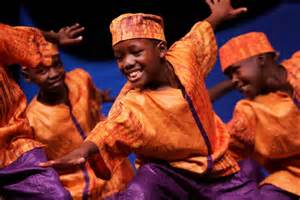Indigenous Knowledge Systems in Africa facing threats, scholars worried

Indigenous Knowledge Systems (IKS) in Africa is facing threats, worried Goolam Mohamedbhai, the former secretary general of the Association of African Universities and former vice-chancellor of the University of Mauritius, in his paper “Indigenous Knowledge Must be Harvested for Development”, presented at the British Council’s Going Global 2013 conference in Dubai from 4-6 March. There are well-documented examples to show the positive impact of Indigenous Knowledge Systems (IKS) on Africa’s development.
“There is a rich body of indigenous knowledge embodied in Africa’s cultural and ecological diversities, and African people have drawn on this knowledge for hundreds of years to solve specific developmental and environmental problems,” Mohamedbhai said. There are well-documented examples to show the positive impact of IKS on Africa’s development.
The World Bank, which launched the Indigenous Knowledge for Development Programme in 1998, documented several cases to illustrate how IKS can play a crucial role in development.
But IKS in Arica faces several threats. First, indigenous knowledge is always passed by word of mouth from one generation to another. Many of the bearers of indigenous knowledge are from the older generation and now find it difficult to communicate their beliefs and practices to the scientifically educated younger generation; once the older generation passes away, the knowledge disappears with them. Second, there is still reticence in the use of IKS, which is considered anecdotal and not scientific, in the development process. Third, there is a real danger that IKS in Africa are being wiped out as a result of the rapid changes occurring from imported economic, cultural and political development models through globalisation.
Mohamedbhai thought that it is imperative therefore that, without delay, IKS in Africa be protected, documented, studied, modified if necessary and then widely disseminated to promote development.
He pointed out that universities in Africa are the obvious institutions to undertake this important task. However, African universities have a poor record of achievements in research, innovation and community engagement. IKS should be embedded in all university teaching, research and outreach activities. This could be achieved by creating an institutional centre dedicated to IKS.
Another model for institutionalising IKS is by creating a national centre. The Centre for Indigenous Knowledge Systems in Ghana is an independent, not-for-profit organisation. Its mission is to examine, preserve, adapt and use the local knowledge of various communities in Ghana and the West African region.
Besides, “an important issue with regard to IKS is the protection of the rights of indigenous people over their traditional knowledge,” said Mohamedbai. Many indigenous communities are concerned about the appropriation of their knowledge by researchers, within and outside Africa, without permission or respect for customary law and with little benefit to them.
As a result of trade agreements under the World Trade Organisation, the use of powerful instruments such as copyright and patents is accelerating the use and privatisation of indigenous knowledge. However, it is questionable whether such intellectual property rights, appropriate for commercial inventions and granting exclusive rights, are also appropriate for indigenous knowledge.
Edited by Yang Lu

 PRINT
PRINT CLOSE
CLOSE